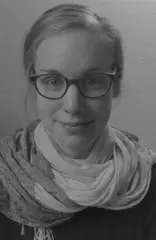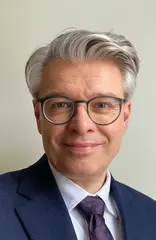How are law and politics reconfigured by the constitutional transformations in Bolivia and Ecuador? A system-theoretical analysis
Since the 2000s, constitutional transformations have been taking place in Bolivia and Ecuador, which are characterised in particular by three decisive turning points: the constitutionalisation of plurinationality, the elevation of the people and the legal subjectivisation of nature. This constitutional change has had an impact on the relationship between law and politics that many consider to be so far-reaching that they speak of a "new Latin American constitutionalism". However, how this change in law and politics can be precisely reconstructed and analysed is still an open question. This is precisely where the project comes in with a systems theory perspective based on Niklas Luhmann. This makes it possible to analyse the effects of constitutional transformations on the legal system and the political system on three levels: At the level of systemic stabilisations, it is examined whether and, if so, how the constitutions contribute to the differentiation of these two systems through structural coupling and de-paradoxification; at the level of systemic self-descriptions, it is examined whether and, if so, how this change is reflected in semantics such as the legal system and the political system. At the level of systemic self-descriptions, it will be analysed whether and how this change is described and reflected in semantics such as the "New Latin American Constitutionalism" or the "Estado de Derechos" (State of Rights); and at the level of system differentiation, the interplay of the operative processing of law and politics (at the first level) and the semantics (at the second level) can be used to draw more precise conclusions about the form and degree of functional differentiation of the political system and the legal system. The aim is to show how the constitutional transformations in Bolivia and Ecuador reconfigure the relationship between law and politics, i.e. whether and how law and politics are differentiated, structurally coupled and de-paradoxed under these conditions, and what function(s) the constitution has in law on the one hand and in politics on the other.
- Barrios Suvelza, Franz X. (2022): The concept of coup d'état under stifling stress: Legal theory's political-science-based response. In: International Journal of Constitutional Law 20, pp. 1982-2007.
- Barrios Suvelza, Franz X. (2019): Neither Unitary nor Federal: Did Bolivians Invent Something New? In: International Political Science Review 41, pp. 1-17.
- Barrios Suvelza, Franz X. (2018): El Control Contramayoritario Como Marco De Análisis De La Influencia Del Nuevo Constitucionalismo Latinoamericano Sobre La Democracia. In: Revista Española de Ciencia Política 47, pp. 39-68.
- Brodocz, André (2009): The power of the judiciary. Wiesbaden.
- Brodocz, André (2003a): The symbolic dimension of the constitution. A contribution to institutional theory. Wiesbaden.
- Vermaßen, Hannah (2023a): The resonance of the economic system for the German energy transition. Structural prerequisites, forms and consequences of social coordination processes. Bielefeld.
- Vermaßen, H. (2023b): Gesellschaftliche Integration durch systemische Resonanz? Zur Refokussierung der Systemtheorie auf die spezifische Offenheit operativ geschlossener Sozialsysteme. In: Mölders, Marc / Siri, Jasmin (Hg.): Differenzierung und Integration. Zur Ausdifferenzierung der Differenzierungstheorie. 5. Sonderband der Zeitschrift für Theoretische Soziologie, Weinheim Basel, S. 223-252.
- Workshop on the methodological foundation of the project on 6/7 March 2025 at the International Meeting Centre of the University of Erfurt


